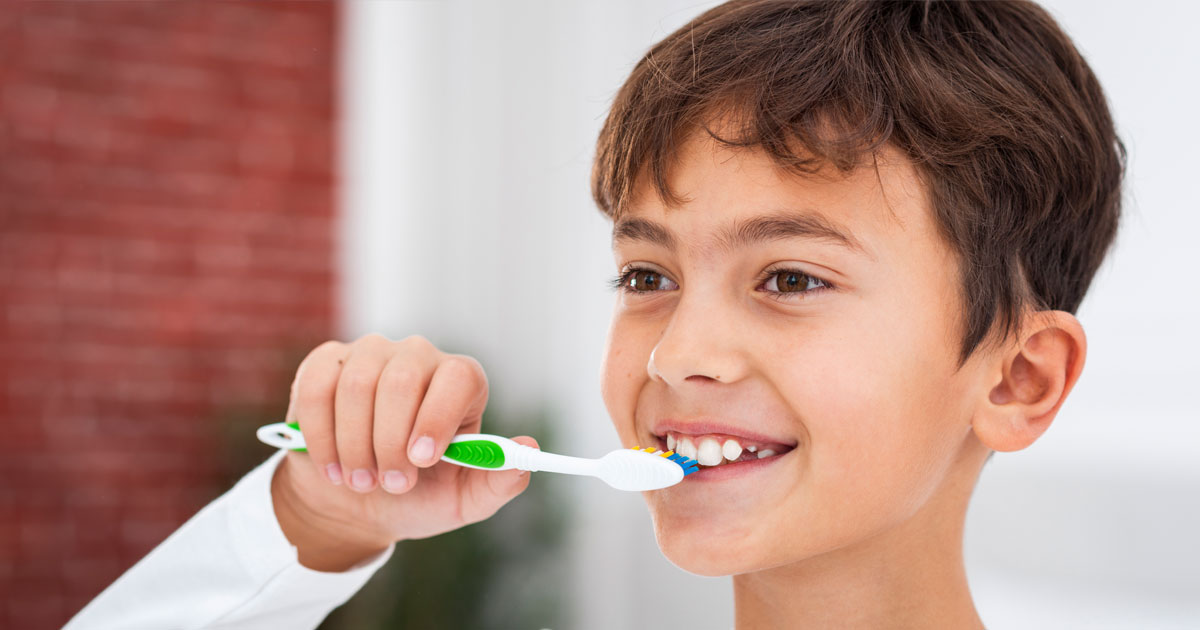Pediatric Dentistry

Because every child has unique and special needs, DentPhix offers a range of dental services catered especially to the little ones. We can’t promise anything pain-free, but we do promise to be extra friendly about it!
Q: What is pediatric dentistry? What ages are covered by pediatric dentistry?
A: Pediatric dentistry is an age-defined specialty that provides both primary and comprehensive preventive and therapeutic oral health care for infants and children through adolescence, including those with special health care needs. So technically, we can treat patients until they are 18 years old and special children, at any age. But of course, the bulk of our patients are usually the ones that are refused by the general practitioners – usually the toddlers, because of their difficult behavior.
Q: Why are baby teeth important?
A: Baby teeth are very important. Teeth are primarily used for eating, therefore are vital for good nutrition. And even if your child's teeth are baby teeth, we tend to have this wrong mentality na "Baby teeth lang naman, mapapalitan din naman yan." So we tend not to take care of our baby’s teeth.
But baby teeth are like mini adult teeth – so they can get decayed and rot therefore can cause pain and infection. And if the child’s teeth are painful, the children can’t eat. And these are the years we want for the children to have good nutrition because these are the developing years. And if the children can't eat well because of rotten teeth, then the children become malnourished.
And along with pain, the teeth can also become infected, which can be an interference with their school – they can't concentrate on their schoolwork and tends to be absent more; and they can’t sleep at night, therefore they don’t get their much needed rest.
Baby teeth are also important for speech, for the child’s self-esteem and also as placeholders for permanent teeth, to guide the permanent teeth in its proper place.
Q: Is tooth decay contagious?
A: Yes, since tooth decay is caused by bacteria, then this bacteria can jump from one tooth to the other and from one mouth to the other. So if the children share their spoons or their drinks with one another, they can actually pass on this bacteria, to a sibling or to a playmate. And if the mother or the yaya also has bacteria in her mouth, they can also pass this on to their alaga – e.g. when feeding, they tend to blow the hot food before they feed it to their alaga.
And when the permanent teeth erupt, and the mouth has high counts of bacteria because the baby teeth are still very rotten, then the permanent teeth will be easily prone to decay as well.
Q: When should the first visit of a child to the dentist be?
A: The child should visit the dentist before his/her first birthday. This way, the mommies or their yayas are taught how to brush the child's teeth; they are informed of good eating habits to take care of their children's teeth; and since no painful treatment is done at this time, then the child has no reason to associate the dentist with pain. Therefore, she'll have a positive image of a dentist and won't be afraid of them.
Q: How often should a child visit his or her dentist?
A: Children should visit their dentist at least every 6 months or sometimes, more frequent visits may be recommended like every 3 months, when a child is assessed to be of "high caries risk" or more likely to form cavities than other children. These regular visits are very important because it will instill in the children the right attitude with regards to their oral health. They will learn to take care of their teeth well and they will carry this onto adulthood and pass it on their children as well.
Q: How often should a child brush his or her teeth?
A: Twice-a-day brushing is enough, but the most important is before going to sleep at night. And it should be absolutely the last activity before going to sleep. Some kids drink milk from the bottle right before sleeping, and this is a very bad habit because the milk that is left on the teeth overnight can cause teeth to decay. So if your kids still drink milk from the bottle at night, the routine should be to drink milk, brush teeth then sleep.
Q: Is there a proper routine for brushing the teeth? How?
A: For children, the up and down motion and the circular motion is enough, making sure that all surfaces have been scrubbed by the toothbrush. But what's important is that there is supervised brushing by the parents. It is recommended that parents themselves brush their children's teeth, at least once a day – preferably at night – until they are 6 years old. When they are older than 6, they develop that dexterity to efficiently brush their teeth, but still, we ask that the parents supervise brushing to make sure that their children are doing a good job.
If your child insists that he brushes his teeth himself, you can always say that he gets a turn after you brush his teeth or your child may have his turn first and then say, "It’s my turn."
Q: How much toothpaste should a child put on his or her toothpaste?
A: First, it is recommend that the children use a toothpaste with fluoride. Fluoride, in its sufficient amounts, is the most effective mineral against tooth decay. Therefore, for a child 2 years old and below, it is sufficient that a smear size of toothpaste is used; a pea size for 6 years old and above.
It is also recommended that the children do NOT rinse with water anymore after toothbrushing because it is best that the fluoride is retained in the mouth for as long as it can for it to do its job – the kids can just spit the bubbles after brushing.
Q: What are the things to avoid to have clean and healthy teeth?
A: Apart from having good oral hygiene, the children should have the proper eating habits. Frequent eating causes frequent acid attacks on the teeth. And eating snacks that have fermentable carbohydrates (fermentable carbohydrates are present in most starches and all sugars) in them like chips, donuts, biscuits have been identified as a factor in promoting dental cavities, as these starchy foods are retained further on the teeth and are slowly cleared from the mouth. Sodas, like soft drinks are doubly harmful because they don't only contain sugar but they also contain acid. Drinking milk from the bottle at night is a very bad feeding habit as milk pools on the teeth and is left there overnight.





